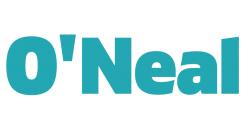For former judge Elaine O’Neal, running for mayor of Durham is not an issue of politics. It’s an issue of the heart.
“I’m a daughter of this city, and I’m an example of what it can produce,” O’Neal said.
O’Neal has watched the city shift, grow and divide before her very eyes, she says. She saw the best and worst of human nature while serving as a district court judge from 1994 to 2011, and as Durham County Superior Court Judge from 2011 until 2018.
Through these experiences, most notably her tenure as judge, O’Neal says she has witnessed a disunity in Durham like she has never seen before. That division motivated her to run for office.
“My plan was originally to retire,” she said. “But as I began to look around the political landscape from my perspective on the bench and lived experience here, I saw that a lot of young people were getting cut out of the conversation—like they’re invisible.”
O’Neal also worked as interim dean for two years at her alma mater, N.C. Central University Law School. Though she often says she is decidedly not a politician, she does have experience at the city level as appointed co-chair of Durham’s Racial Equity Task force organized by City Council last year. She and the 17-member team produced a 60-page report urging the city to set up a reparations program to address the racial wealth gap and to confront inequity in the legal system, public health, housing and education.
During an interview with The 9th Street Journal, she pointed right outside to Main Street, noting how within a few blocks, there are disparities between million dollar apartments and Title IX affordable housing complexes. She nodded her head towards the door, where across the street sat half a dozen unhoused people.
“We’re going to let Durhamites in wheelchairs sit on the street? Is that what we’re doing now? Is that who we are?” she asked. “That’s not the Main Street I know. We were more inclusive.”
The Hillside High School graduate is quick to admit that though she is an expert in law, she is not an expert on housing. She has put herself in “housing school,” as she puts it.
“What I’ve been doing is going to experts and learning more. So, do I have an answer on what my plans are about housing? No, because I’m still learning,” she said.
She also admits she’s not incredibly well-acquainted with the political sphere in Durham, something she says she must rectify if she is to win the office of mayor.
What O’Neal does seem to know, though, is Durham its residents and the issues burdening them, from gun violence, to housing insecurity, to systemic racism, to poverty.
“All of these issues are interconnected and layered,” O’Neal said. “I see so many young people in this city that want to do better, but there are these roadblocks, and they don’t know what the roadblocks even are or how to navigate them.”
The registered Democrat is staunch that building trust and unity within Durham’s various populations will allow her to achieve her goals.
She hopes to connect people in power with people who feel voiceless. She asks questions like: When was the last time that apartment building developers and houseless people actually sat at the table together and talked? To some, this might sound unreasonable and even completely unattainable. But not to O’Neal.
“We put a man on the moon didn’t we?” she said. “These issues will not be solved overnight. But will we find solutions? Absolutely. Absolutely.”
Mayoral candidate and former judge Elaine O’Neal speaks with a class of Duke student courthouse reporters.
Transportation is another prominent issue on O’Neal’s agenda. The city’s public transit system is less than perfect, and the 2019 demise of the light rail project only compounded shortcomings. If she is able to connect Durhamites with jobs in the newer technology businesses entering town, she says figuring out transit is an essential piece.
“What would it look like to have our own version of Lyft that is specifically designed to go into neighborhoods where we don’t have transportation to get them back and forth from jobs?” O’Neal asked.
She points to her work with gun violence in Durham as a top priority as well, noting her personal closeness to the issue. Her own 22-year-old cousin was killed by gun violence in November 2020, and that was not the first time gun violence personally affected her. She’s certainly not alone: though shootings in Durham reached a historic low in 2019, they rose with 319 people shot in 2020. As of August 14, 158 people had been shot in Durham in 2021.
“I can go to the Southside. I can go to the West End. I can go to Braggtown. I can maneuver in places that most people cannot,” she said. “I know these people. They may not have agreed with my rulings in court, but they know where my heart is.”
She’s hopeful that economic growth in Durham will be a net positive for native Durhamites. Growth may bring jobs to Durhamites in need, she says, and thereby decrease both poverty rates and gun violence.
Former Durham Mayor Bill Bell says that gun violence is one reason he endorsed O’Neal for mayor. A couple weeks ago, Bell met a man who said Judge O’Neal changed his life by putting him on probation instead of giving him jail time.
“The whole issue of public safety and crime is one of the most important ones in Durham right now, and she is the perfect fit for dealing with that issue,” Bell said. “She knows all sections of Durham.”
Some of Durham’s prominent political action committees are supporting her for similar reasons. Both The Durham Committee on the Affairs of Black People and Friends of Durham endorsed O’Neal. Antonio Jones, the Committee’s chairperson, echoes Bell’s statements, saying that her presence in the community, her qualifications and her familiarity with life here pushed them towards endorsement.
“She was doing restorative justice work before it was a cool thing, before it was a fad. She wants to really get out there and see who has been left out of the growth,” Jones said.
O’Neal was the first to announce her candidacy for mayor, announcing her candidacy back in January, before current Mayor Steve Schewel decided he would no longer be running for reelection.
The move seemed like an obvious statement of dissatisfaction with the current political climate in Durham. O’Neal says she wasn’t trying to stir up drama or make an announcement – she just figured if she was going to run, she might as well get a head start.
“When people look at me, I just want them to see what Durham has produced,” she said. “All I can present is who I am, and Durham has to decide what it wants, because the options are very clear.”
Credit: Indy Week

